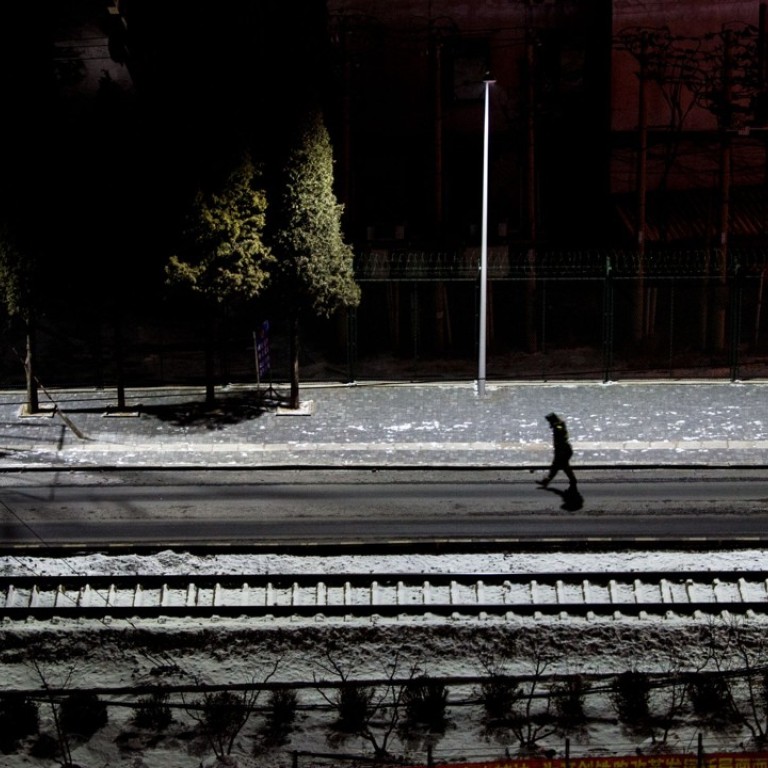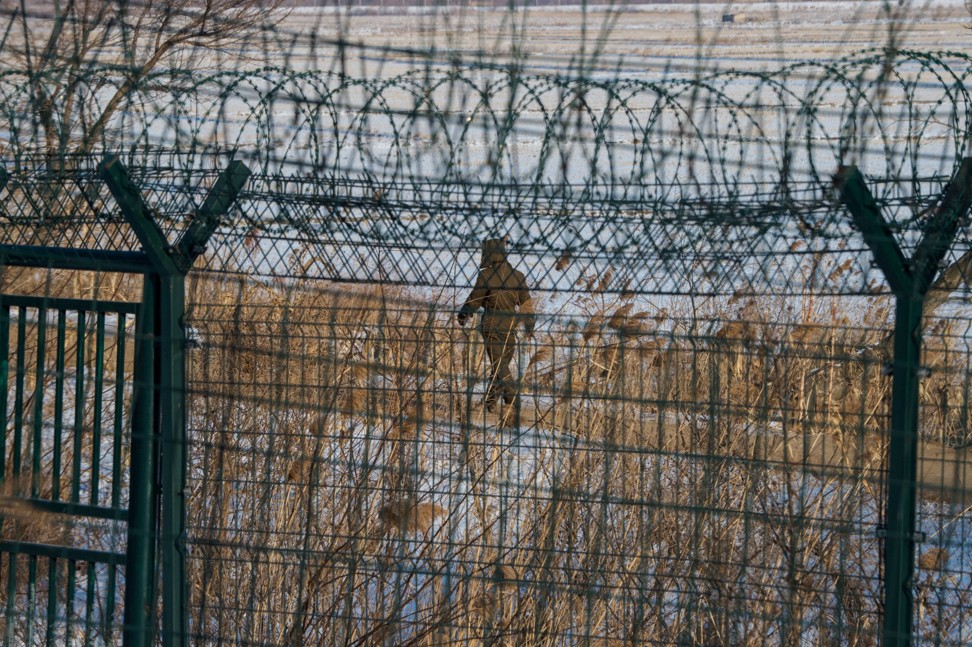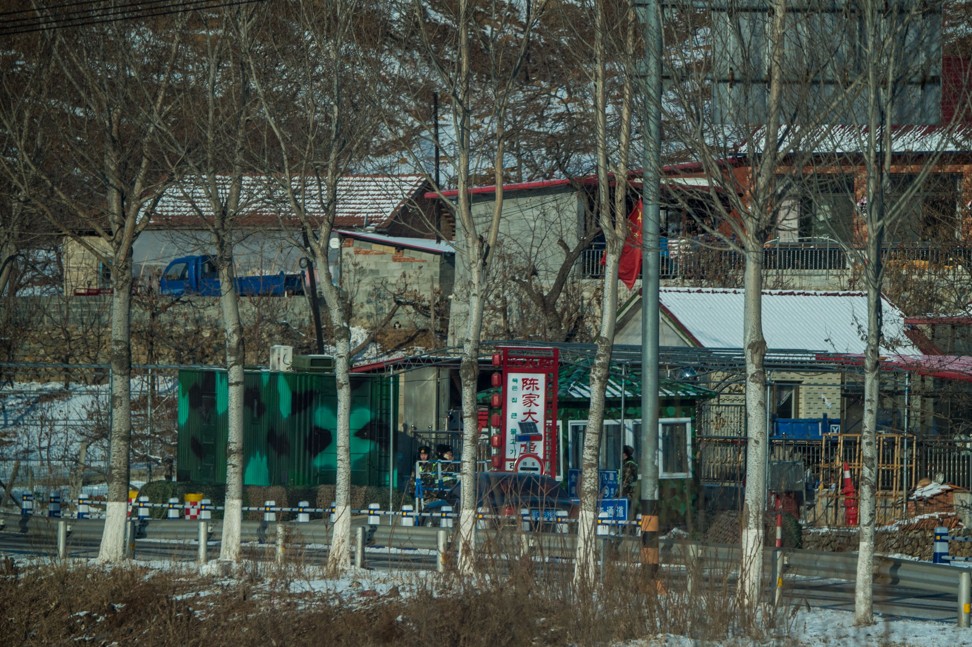
Troops, cameras, radiation: China prepares for North Korea crisis
Chinese in border city of Dandong say they have been discouraged from interacting with North Koreans
China has ramped up security along its border with North Korea, installing new surveillance cameras, deploying extra security forces and operating radiation detectors as it braces for a potential crisis.
Bellicose rhetoric between Washington and Pyongyang has raised fears in China of a conflict that could send millions of North Korean refugees across the 1,420km (882 mile) border, and of nuclear fallout that could hit Chinese towns.
While authorities have been coy about preparations, residents have seen an increase in patrols along the frontier.
Radiation monitors are running in border towns, and locals said interactions with North Koreans had been discouraged.
A red banner tacked to a border fence in Dandong – a major trading hub separated from North Korea by the Yalu River – has a cold war-like message to residents: “Citizens or organisations who see spying activities must immediately report them to national security organs”.
Outside Dandong, new checkpoints dot the road running along the Yalu. Locals said they were installed in October.
“Before, the North Koreans came to our side to fish. Now they don’t dare,” said Zhang Fuquan at his fish farm on the Chinese side of the river.
“The army patrols and watches.”
At the massive Supung hydroelectric dam, which provides power to both China and North Korea, surveillance cameras monitor the Yalu.
“The border is tightly controlled now,” said 75-year-old retiree Yin Guoxie, who spent a lifetime working at the dam.
Regular North Koreans were not allowed to have boats, which minimised the number who tried to cross, he said.
“If they do come over here, we’ll catch them and send them back,” he said.
Further north in Longjing, where the Tumen River freezes over in the winter, villages have established border protection units and cadres have taught self-defence to residents.
The local propaganda department said last year that hundreds of cameras were being installed to build a “second generation border surveillance system”.
The measures are slashing the number of North Korean defectors who reach Seoul via a land route through China to Southeast Asia.
Fewer than 100 North Koreans a month reached the South last year – the lowest number in 15 years – according to Seoul’s unification ministry.
Five of Pyongyang’s six nuclear tests have been carried out under Mount Mantap at Punggye-ri, about 80km from the border with China, where citizens felt the accompanying earthquake.
Fear of radiation from a test, accident or nuclear war spreading to China’s border regions runs high.
After Pyongyang’s sixth nuclear test in September, China’s Ministry of Environmental Protection conducted emergency radiation monitoring, though nothing abnormal was found.
At the Dandong border crossing, authorities last week checked to make sure their nuclear radiation monitoring and protection equipment was working properly.
Further afield, in Lagushao village, AFP reporters saw a whirring “Radiation environment automatic monitoring station” housed inside a hut.
Guo Qiuju, a professor at Peking University, said the station was capable of detecting radiation coming across the border.
“If the monitoring stations show any abnormalities, we will immediately alert citizens,” he said.
The Lagushao station is not listed on the environment ministry’s online network, suggesting it might be new.
The ministry did not immediately respond to faxed questions for comment.
“If there is a river, lake or pond near you, jump in to protect yourself,” it read.
Afterwards, “flush out your nostrils, rinse your mouth, and clean out you ear canals”.

.png?itok=arIb17P0)

